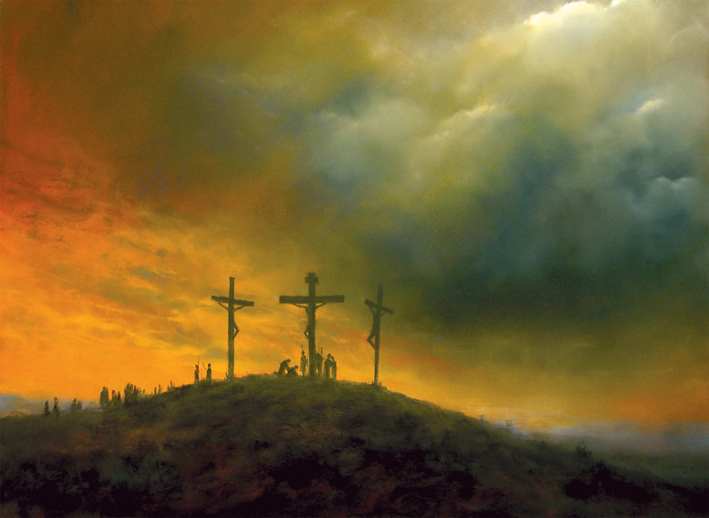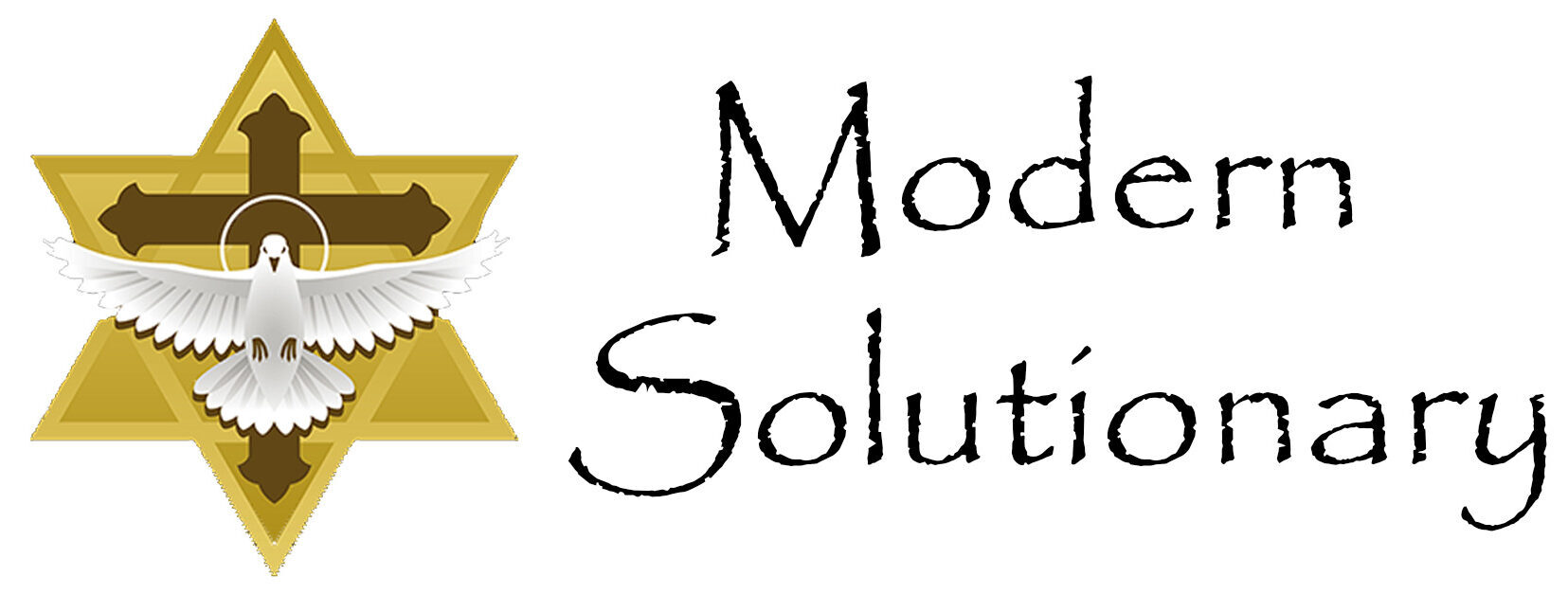
It is a chilly afternoon in early April. The wind is briskly blowing over the rocky hillside. A small squad of soldiers, having just completed their assigned tasks, huddle around a small fire to rest. The gruesome duties which they fulfilled, though cruel in the eyes of many, are just routine actions for this experienced team of men. Even as their three prisoners moan and scream in agony and the bystanders gather to jeer or cry all around them; the soldiers can casually joke and enjoy the company of one another because this is just like every other day in their everyday lives.
As for the three men that they had just nailed and suspended onto three blood stained crosses, the day was anything but routine. It was a day unlike any other. A single day filled with so much unimaginable pain and humiliation that it seemed to last for an eternity. Only to culminate into one final massive physical trauma of being impaled onto a wooden beam, lifted and secured to another in the shape of a cross displayed in a public place so that each man was forced to suffer mental anguish as well. They were left to their own mental torture as to ponder their unique existence while excruciatingly balancing their spiritual future on the remainder of the last day of their earthly existence.
One of them was not satisfied to suffer alone. He joined in the torment of one the three.
One of the criminals who were hanged there was hurling abuse at Him, saying,
“Are You not the Christ? Save Yourself and us!”
But the other answered, and rebuking him saying,
“Do you not even fear God, since you are under the same sentence of condemnation? We indeed are suffering justly, for we are receiving what we deserve for our deeds; but this man has done nothing wrong.”
“Jesus, remember me when You come in Your kingdom!”
Jesus said to him, “Truly I say to you, today you shall be with Me in Paradise.”
This passage fully describes the life embodiment of the three solutions to every problem. The criminal who taunted Jesus represents those of us who intentionally make the wrong choices. Jesus, on the other hand, validates the exact opposite by setting the example that it is always possible to make the right choices in life. And finally, the repentant thief, is the person who goes through life choosing the acceptable concessions.
Criminal one, is portrayed as some one who lacks empathy and has no fear of retribution; even as he suffers the ultimate penalty for utter selfishness. It is clear that he and the other criminal were partners in crime. They were caught stealing, likely from the Roman government or from a high-ranking Roman official, evidenced by their death sentence. Theft from a regular citizen would have resulted in the loss of a hand not the loss of life. This case is what became known as a Capital Crime.
As we analyze the comments that the second criminal makes to his buddy, we can assume that he lived a life filled with regret from the decisions he made. He was likely someone who would be referred to as a follower. He knew the decisions he made were wrong but he did them anyway and probably without total commitment to his actions. If left to his own accord in the decision-making process, he would spend a little more time in deciding his actions, weighing the right choice from the wrong and would probably land on the choice of an acceptable concession; always closer to the wrong choice. In other words, he probably was a good man who followed the wrong people.
The example of Jesus, from a Christian’s perspective, is clearly a man who made the right choices and was willing to endure the consequences of his decision. If you believe that he was true man, then he experiences hurt, suffering and pain like all of us. If you also believe He is true God, then you believe He could have avoided all this pain just by willing it so. This is what make the story of Good Friday so remarkable.
The story of an innocent man standing for the truth even when that single decision will get him killed. For three years, the Jewish leaders squabbled over the truths Jesus was sharing with their followers. Many of them secretly believed these truths but their livelihoods and social status required that they rebuke the truth. It was their selfish reasons that ultimately cost him his life. When he was directly asked if he was the Son of God, he told the court the complete truth. “I am!” These two words were told to Moses two thousand years before; when kneeling in the presence of God asked, “What should I call you? God replied, “I am who I am.” In three days, their selfish lies would be exposed to the world.
Anthony “Tony” Boquet, the author of “The Bloodline of Wisdom, The Awakening of a Modern Solutionary”
If this is my last post, I want all to know there was only one purpose for all that I have written; to have made a positive difference in the lives of others.
